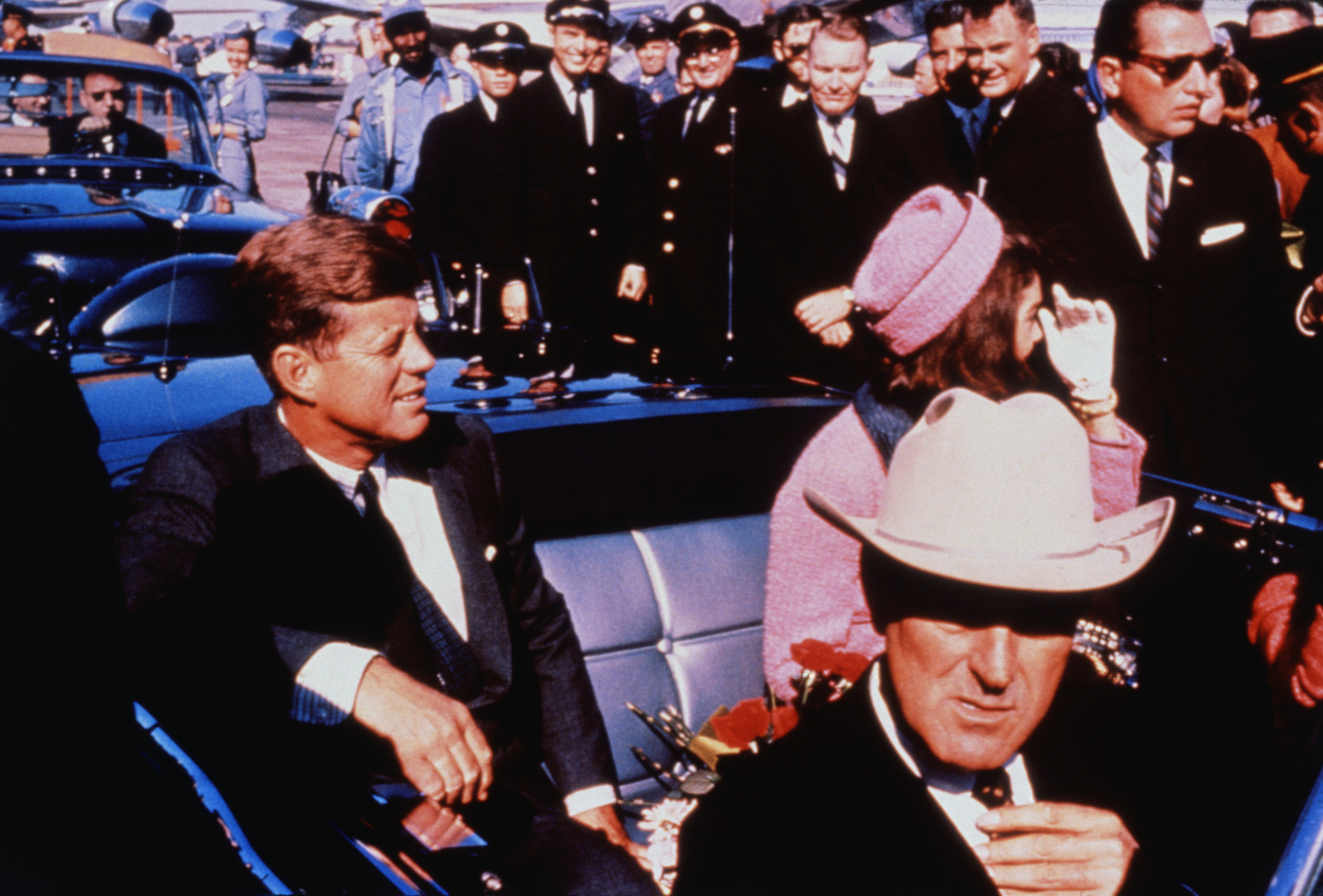JFK assassination conspiracy viewed completely differently by Gen Z
Generation Z Americans are significantly more likely to believe Lee Harvey Oswald was solely responsible for the assassination of President John F. Kennedy than their older compatriots, according to a new poll conducted exclusively for Newsweek.
The Redfield & Wilton Strategies survey found that, of those members of Generation Z, defined as those born between 1997 and 2012, old enough to vote, 36 percent believe “one person (Lee Harvey Oswald) was responsible for the assassination of President Kennedy.” Another 42 percent think “multiple people were involved in a conspiracy to assassinate President Kennedy,” with 21 percent unsure.
Kennedy was shot and killed on November 22, 1963 as his motorcade made its way through Dallas, Texas. Police arrested Oswald, a former U.S. Marine, for the crime. However, on November 24, he was also shot by local nightclub owner Jack Ruby while being escorted through the basement of Dallas Police Headquarters. Oswald later died of his injuries.
Both the FBI and the Warren Commission, set up by President Johnson to investigate Kennedy’s murder, concluded that Oswald acted alone. However, many Americans continue to believe unverified claims that he was killed as part of a wider conspiracy, potentially involving organized crime or even government agencies. In December 2022, a CIA spokesperson told Newsweek that 95 percent of the agencies’ files related to the Kennedy assassination had been “been released in their entirety.”
For the U.S. as a whole, the Redfield & Wilton Strategies found 50 percent of eligible voters believe multiple people were involved in the Kennedy assassination, versus 28 percent for just Oswald, and 22 percent who said they didn’t know. Notably, those aged 55-plus, the majority of whom were alive when the assassination took place, were the most likely to doubt the official narrative. Among this group, 55 percent believed more than one person was responsible, against just 24 percent who support the official narrative, with the remainder unsure.
For the survey, Redfield & Wilton Strategies surveyed 1,500 eligible U.S. voters on October 29, with the data weighted by a variety of factors, including age, gender, race, region and educational level.
Daniel Jolley is an expert in the psychology of conspiracy theories who teaches at the University of Nottingham in the U.K. He told Newsweek that, while support for conspiracy theories overall remains stable over time, backing for individual ones tends to drop.
Jolley said: “It certainly can feel like belief in conspiracy theories are more popular than ever. However, with the aid of the internet, we can shine a spotlight on conspiracy theories much more easily. This spotlight may give the impression they are getting more widespread, but conspiracy beliefs, on average, have remained pretty stable over time.
“Evidence suggests that, as a specific conspiracy theory ages, it often loses rather than gains believers over time,” Jolley added. “But that generalised belief that powerful groups are secretly plotting is something that does not seem to attract more believers than in previous decades. That seems to be stable.”

Bettmann/GETTY
Professor Daniel Hellinger, author of Conspiracies and Conspiracy Theories in the Age of Trump, told Newsweek that younger Americans may be less interested in Kennedy assassination conspiracy theories because it was so long ago.
Hellinger said: “Certainly, it’s plausible that younger Americans are simply less focused on something that happened in 1963. On the other hand, only 28 per cent [of Americans] endorse the Warren Commission’s ‘lone gunman’ theory.”
A similar view was expressed by Professor Peter Starr, an expert in conspiracy theories who teaches at the American University in Washington D.C. He also told Newsweek that the changing political focus of conspiracy theories has played a role.
Starr said: “What I can say for certain is that the conspiracist impulse has been a constant in American culture—political and otherwise—since before the Revolution, waxing and waning but never disappearing. Sometimes, its center of gravity is on the left (the JFK assassination, 9/11 Truth); sometimes, on the right (the McCarthy era, the 1990s militia movement, QAnon and the like today).
“My strong suspicion is that we see less about the JFK assassination today in part due to the passage of time, in part due to this center-of-gravity shift,” Starr added.
Uncommon Knowledge
Newsweek is committed to challenging conventional wisdom and finding connections in the search for common ground.
Newsweek is committed to challenging conventional wisdom and finding connections in the search for common ground.


